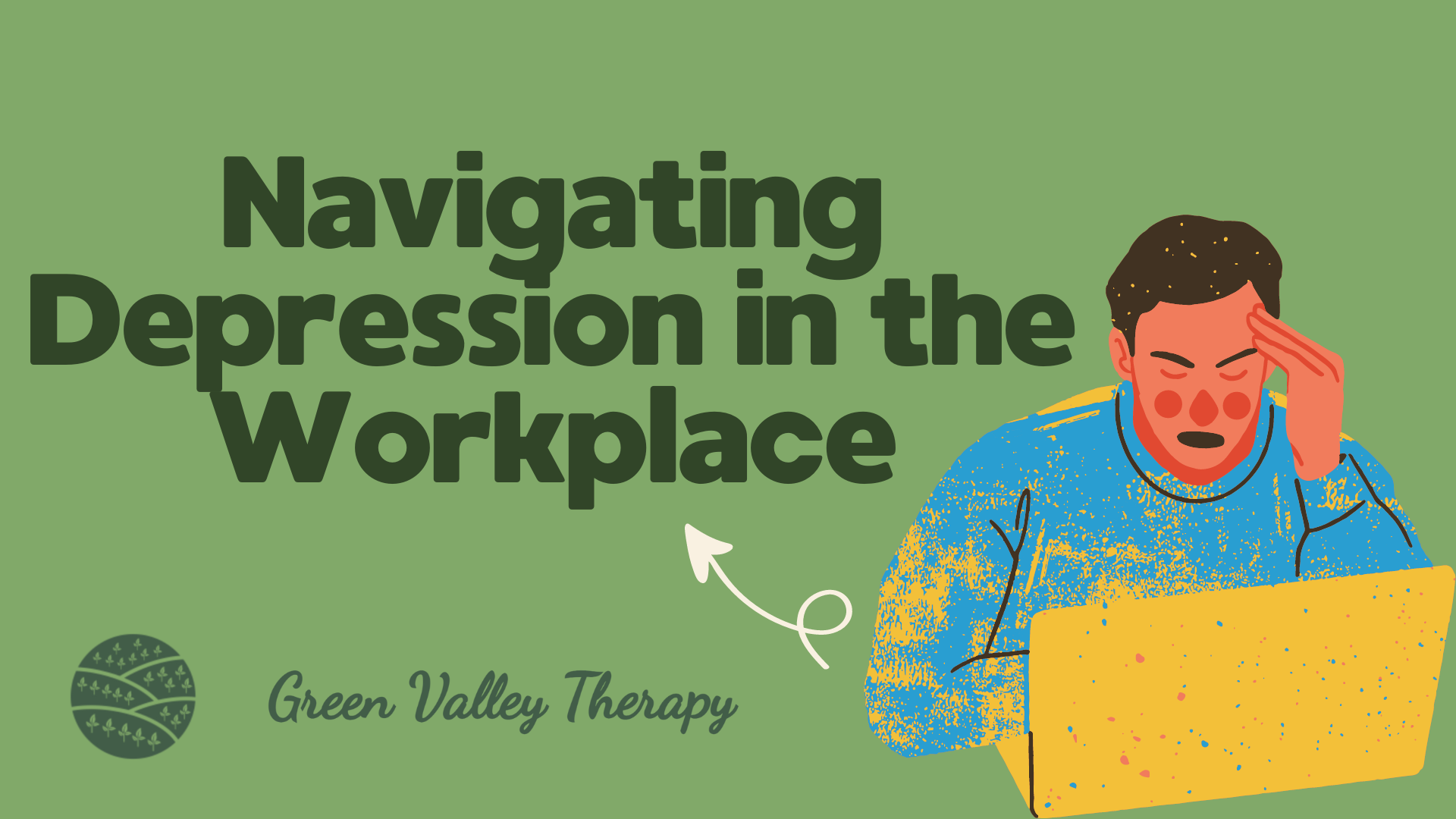Navigating Depression in the Workplace A Guide for Employees and Employers
In today's fast-paced work environment, the impact of mental health issues, particularly depression, cannot be overstated. Depression in the workplace not only affects individual employees' well-being but also has significant implications for organizational productivity, morale, and overall success.
This comprehensive guide will explore the challenges of navigating depression in the workplace and provide practical strategies and resources for employees and employers to promote mental health and create supportive work environments.
Understanding Depression in the Workplace
Depression manifests differently in individuals, but some common signs in the workplace may include:
Decreased productivity and focus
Loss of interest in work tasks and projects
Increased absenteeism or tardiness
Social withdrawal and isolation from colleagues
Irritability or changes in mood
Difficulty making decisions
Fatigue and lack of energy
It's important to remember that these signs can also point to other issues. However, suppose you or someone you know is experiencing several of these symptoms for an extended period, particularly if they are causing significant distress or impairment. In that case, it's crucial to seek professional help.
Challenges Faced by Employees with Depression
Employees dealing with depression often face numerous challenges in the workplace, including stigma, discrimination, and fear of disclosing their condition due to concerns about job security or negative repercussions.
Additionally, navigating daily work tasks and responsibilities can feel overwhelming, exacerbating feelings of inadequacy and isolation. Without proper support and accommodations, employees with depression may struggle to perform their duties effectively and may experience a decline in job satisfaction and overall well-being.
Employees: Strategies for Managing Depression at Work
If you're struggling with depression, here are some strategies that can help you navigate work:
Self-Awareness: Recognizing the signs and symptoms of depression in yourself is the first step. Tracking your mood and energy levels can provide valuable insights.
Seek Professional Help: A therapist can equip you with coping mechanisms, support groups, and treatment plans to manage depression effectively. Our team at Green Valley Therapy specializes in treating depression and can guide you on your path to recovery.
Communicate with Your Supervisor: Consider having an open and honest conversation with a supportive supervisor. Explain your situation and explore potential accommodations, such as flexible work arrangements or reduced workload, that can ease your burden.
Focus on Self-Care: Prioritize healthy sleep habits, regular exercise, and a balanced diet. Engage in activities you find enjoyable, even if it's just for a short period each day.
Set Realistic Goals: Break down large projects into smaller, more achievable tasks. Set realistic goals for yourself to avoid feeling overwhelmed and discouraged.
Connect with Colleagues: Social interaction can be a powerful mood booster. Build positive relationships with colleagues and seek opportunities for collaboration.
Employers: Fostering a Supportive Work Environment
Employers play a vital role in creating a workplace that supports employees struggling with mental health challenges. Here are some ways to foster a supportive environment:
Mental Health Awareness: Educate your employees about mental health conditions like depression. You can organize workshops or seminars led by mental health professionals.
Normalize Open Communication: Encourage open communication about mental health within your organization. Emphasize that seeking help is a sign of strength, not weakness.
Flexible Work Arrangements: Consider offering flexible work arrangements when possible. This could include remote work options, adjusted work schedules, or reduced hours to help employees manage their well-being.
Employee Assistance Programs (EAPs): If your company offers an EAP, promote its availability and benefits to employees. EAPs provide confidential counseling services and resources for mental health concerns.
Reduce Work Stigma: Challenge negative stereotypes surrounding mental health conditions. Normalize open conversations about mental health and encourage empathy among colleagues.
Lead by Example: Leaders who demonstrate self-care and prioritize their own well-being can inspire employees to do the same.
Benefits of Addressing Depression in the Workplace
By acknowledging depression and taking steps to create a supportive work environment, employers can benefit from:
Reduced absenteeism and presenteeism (reduced productivity while physically present)
Improved employee morale and engagement
Enhanced creativity and innovation
Reduced healthcare costs associated with untreated depression
Stronger employer brand and employee loyalty
A Word from Green Valley Therapy
Navigating depression in the workplace requires a concerted effort from both employees and employers to promote mental health, well-being, and productivity. By fostering a culture of understanding, support, and empathy, organizations can create environments where employees feel comfortable seeking help, accessing resources, and prioritizing their mental health.
Together, we can work towards creating workplaces that prioritize mental health and well-being for all employees.
Visit our Therapy for depression page to learn more about managing depression in the workplace and discover additional resources to support mental health and well-being.



